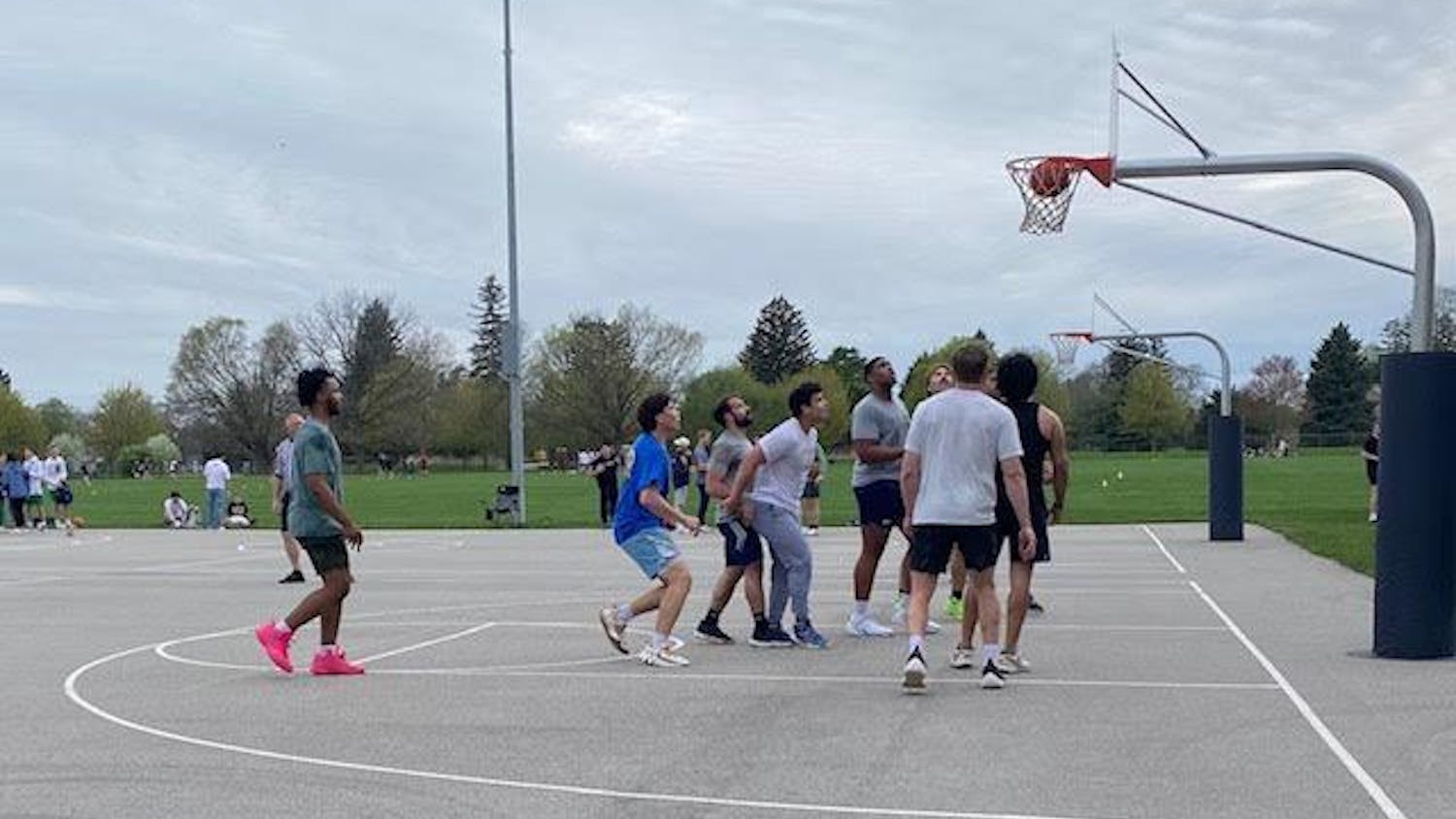Two members of Notre Dames, a female empowerment club, senior Alison Leddy and senior Bri Prusakowski, led a discussion about street harassment as part of Saint Mary’s Safety Week on Tuesday.
Leddy posed the question of why men think they are invited to call out to women on the streets and why they are quick to defend themselves when they are called out on it.
“I think a lot of the issue is it’s not welcomed," junior Michelle Casado said. “You’re a stranger usually. I feel like that’s a big part of it.
“ … If the woman isn’t welcoming it, you shouldn’t go for it. It’s regardless of the comment you’re making. If it’s not welcomed, there’s no consent.”
Junior Emily Beaudoin said she does not understand what men get out of catcalling women. She said that women are not going to respond to a catcall by dating the man, so she does not know why they do it in the first place.
Prusakowski responded by y she thinks there isn't an objective in street harassment, but rather a sense of entitlement.
“It’s ‘You’re there, and I can say something, so I’m going to.’ I feel it’s almost automatic. This idea of entitlement or this need to comment on someone else. They don’t really have a plan beyond what they’re saying," Prusakowski said.
Leddy said she believes the goal of catcalling and street harassment is to start a conversation.
“I feel like it’s framed in a way that there is a goal,” Leddy said. “That’s why I think people get away with it in a sense because they [think they’re] starting conversation. But conversations never start that way.”
Casado said it’s a problem that in many cases, men do not realize that there is anything wrong with catcalling.
“The idea that it’s normal to be able to objectify a woman like that is so bizarre,” she said. “Even if they personally don’t mean it, there’s still a huge issue in that they think it’s just normal and acceptable. Where is that coming from?”
Prusakowski said a lot of the perpetrators are younger men and teenagers.
“It’s so normalized and it’s so removed from analysis, that they don’t think about it,” she said. “They don’t see anything wrong with it because it’s just what everyone else does.”
Leddy posed the question of how catcalling became normalized.
Junior Lizzy Reid said she believes there is a group mentality behind catcalling.
“A lot of times it’s a group of teenage. One of them will say something, and then all of a sudden, they’ll all start," Reid said. "They feed off each other’s energy, and it becomes worse and worse. They think it’s all right so they all contribute to it.”
Prusakowski said men see the women they harass as objects. She also noted that this is not a new phenomenon because older men do it, too, and other boys are going to grow up thinking this is the norm and will continue to perpetuate street harassment.
Leddy said catcalling is about power dynamics. She said there is a power dynamic between the groups of boys and the individual girls they are catcalling, and there is also a dynamic between women.
“We’re not only teaching guys to do that from a young age,” Leddy said. “ ... We’re also teaching girls to accept it and live with it.”













